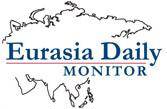The resentment about the US role in unleashing the global crisis inevitably reduces thinking in the Kremlin about moving U.S. relations up from the not-that-uncomfortable nadir.
Both Medvedev and Putin tried to perform as wise statesman meeting with Kissinger, but in reality for them global issues are just a public relations campaign of little importance compared with their real priorities of re-distributing money and property among servile but disloyal oligarchs. There is no way around the simple premise that in order to achieve a new positive start in U.S. relations, Russia has to begin a meaningful reformatting of its corrupt quasi-democratic regime. The Obama administration refrains from advocating any conditions of this sort, but Medvedev seems to be aware of the need to modernize the rigid system of "Putinism." He remains reluctant, however, to deviate from the course set by his senior partner, who believes that the crisis hurts the U.S. more than Russia and will diminish its leadership, scorned as "uni-polarity." Putin relies on the "fear factor" to keep the disgruntled elites under control and expects that demonstrative generosity towards pensioners and other "have-nots" would prevent an escalation of protest activity. His new anti-crisis plan unveiled last week does not envisage any new grants to struggling oligarchs, but gives first priority to social protection; it could, however, be overtaken by the unfolding disaster - as was the previous plan adopted last November. Such an emergency would require different kinds of measures, and forceful mobilization against an external threat is Putin's fall-back option of choice; anti-Americanism, therefore, remains an important political resource - perhaps the very last refuge for a pair of scoundrels.







